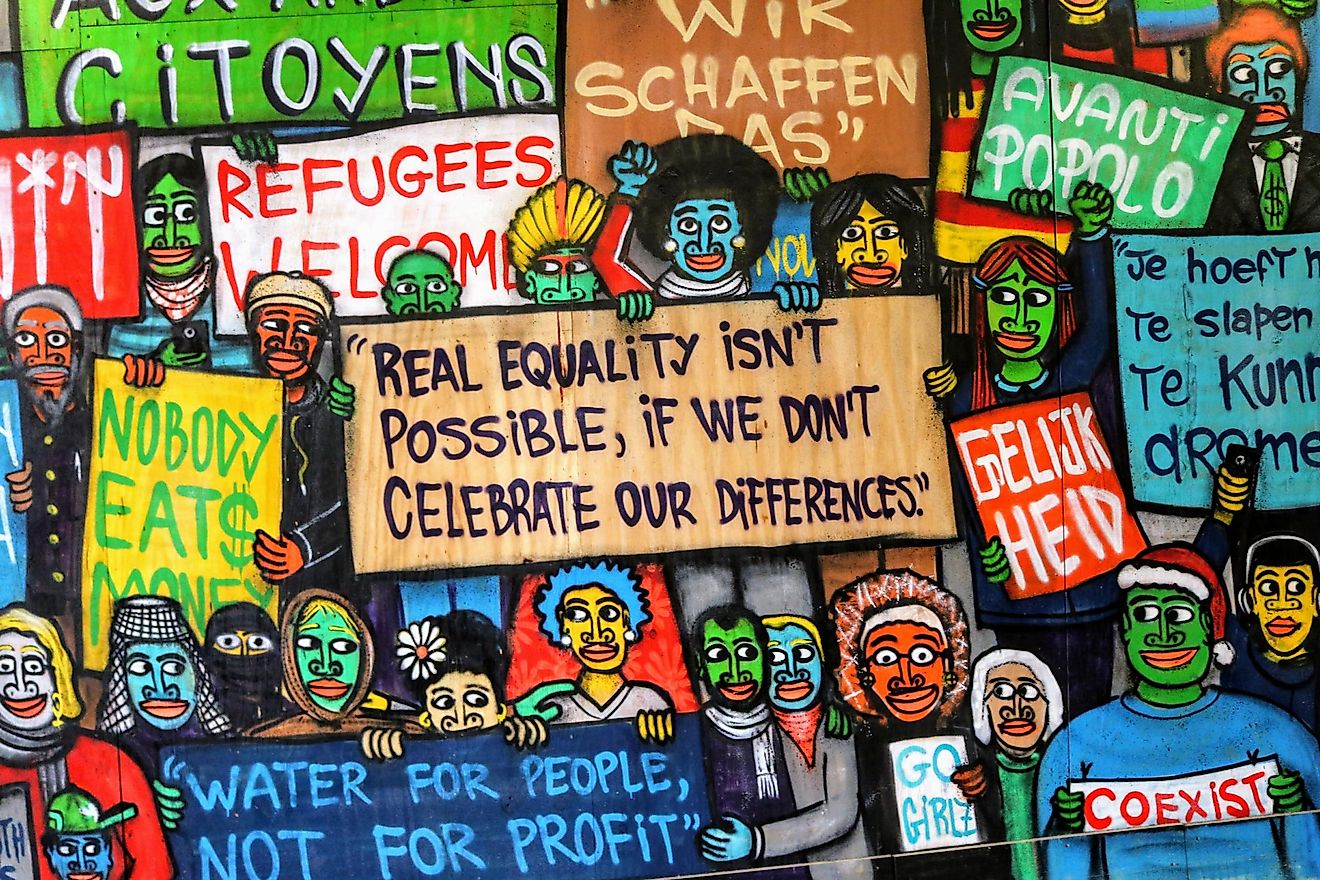What Is Egalitarianism?

- Egalitarianism is a school of thought that follows the idea that all people are equal.
- Some believe Karl Marx was an egalitarian and others argue he was not.
- True legal and economic egalitarianism can be hard to achieve.
Can you imagine a world in which all people are truly considered to be equals, no matter their gender, race, education, wealth, religion, or some other defining factor? If you wish the world really was this way you could be someone who adheres to values of egalitarianism.
Egalitarianism is a school of thought that follows the idea that all people are equal, and as such, each individual deserves to have access to equal rights and opportunities in life.
There are many ways of approaching egalitarianism. Some more common routes involve economic egalitarianism and legal egalitarianism.
Economic Egalitarianism

Those who believe in economic egalitarianism believe that everyone in society should have equal access to acquiring wealth. This is obviously easier said than done. Equal access to an equal education, and equal chances to access opportunities to grow your wealth can be as difficult to define as they are to put in practice.
Karl Marx was a German philosopher and revolutionary whose patterns of thought are said to have inspired the beginnings of communism, and some believe he was a strong egalitarian. Others, however, believe he was not and that he was actually a believer in human freedom and human development who saw the impossibilities of guaranteeing an equal income for all workers in society.
Marx pointed out the tribulations of arguing for equality in an abstract way. According to some, he argued that if things become equal in one dimension, they can become unequal in another. For example, if all workers were paid the same wage per hour, those who were physically able to work more hours would end up earning more money. In contrast, if everyone worked the same amount of hours and got the same pay, those who had to support a larger family would have their money spread more thinly, resulting in them having less spending power. In these basic ways, it can be seen that economic egalitarianism can be very difficult to achieve but could be something to strive for in society.
Legal Egalitarianism

Legal egalitarianism refers to the idea that all people are equal under the law, and that the laws are to be applied equally to all. Democracy is, in theory, an example of this. In the US, the constitution outlines the rights of the American people, with the aim of ensuring legal egalitarianism in some ways.
Some people view the US as a country in which people really are treated equally in courts of law, and others would argue they are not. In 2016, a white college student and athletes by the name of Brock Turner sexually assaulted an unconscious woman. He received just six months in prison, whereas someone like Rafael Ruiz, who was convicted of participating in a gang rape at the age of 25, received 25 years in prison for a similar crime. (It turned out he was actually falsely accused and convicted).
Some would argue this comparison highlights the way in which people of different races are treated unequally in American courts of law, even with the constitution in place to protect citizen’s rights. In this way, it can be said that legal egalitarianism can be as difficult to achieve in practice as economic egalitarianism, and as such, it presents an ideal to strive for rather than a school of thought that can be truly experienced in reality at all times.
Egalitarianism can also be applied to many other areas, and a person could really take the idea as far as they see fit. Animal egalitarianism? Birthday party egalitarianism? Life could be what you imagine it to be.











